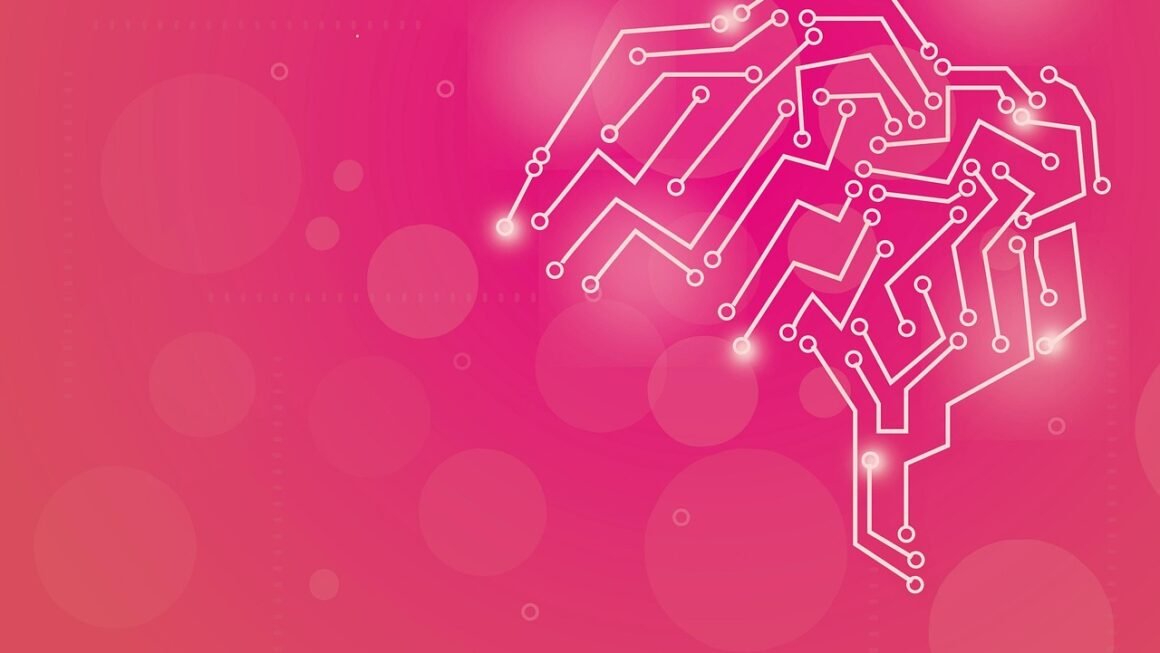The healthcare industry is undergoing a dramatic transformation, fueled by the rapid advancements in artificial intelligence (AI). From diagnosing diseases to personalizing treatment plans, AI is revolutionizing how healthcare is delivered and experienced. This technological shift promises improved patient outcomes, increased efficiency, and reduced costs. Let’s delve into the ways AI is reshaping healthcare and what the future holds.
AI-Powered Diagnostics and Imaging
Enhancing Accuracy and Speed
AI algorithms are proving to be incredibly adept at analyzing medical images, such as X-rays, CT scans, and MRIs. They can detect subtle anomalies that might be missed by the human eye, leading to earlier and more accurate diagnoses.
- Example: AI systems are being used to analyze mammograms with greater accuracy, reducing the number of false positives and false negatives in breast cancer screenings.
- Benefit: Earlier detection of diseases like cancer allows for more effective treatment and improved survival rates.
Real-World Applications
AI is deployed in various diagnostic areas, including:
- Radiology: Analyzing images for fractures, tumors, and other abnormalities. AI can prioritize critical cases for immediate attention, improving workflow efficiency.
- Pathology: Assisting pathologists in analyzing tissue samples to identify cancerous cells and other diseases. AI can provide quantitative analysis and reduce subjectivity in diagnosis.
- Ophthalmology: Detecting diabetic retinopathy and other eye diseases through image analysis. AI-powered tools can screen large populations for early signs of disease, preventing vision loss.
Actionable Takeaway
Healthcare providers should explore AI-powered diagnostic tools to enhance their accuracy and efficiency. Training and collaboration between AI systems and medical professionals are essential for optimal results.
Personalized Treatment Plans
Tailoring Healthcare to Individual Needs
AI algorithms can analyze vast amounts of patient data, including medical history, genetic information, lifestyle factors, and treatment responses, to create personalized treatment plans. This approach moves away from one-size-fits-all medicine and towards targeted therapies that are more effective and have fewer side effects.
- Example: AI systems are used to predict a patient’s response to chemotherapy, allowing doctors to choose the most effective drug and dosage.
- Benefit: Personalized treatment plans can lead to better patient outcomes, reduced healthcare costs, and improved quality of life.
AI in Drug Discovery
AI accelerates the drug discovery process by:
- Identifying Potential Drug Candidates: Analyzing vast databases of chemical compounds and biological data to identify molecules that are likely to be effective against specific diseases.
- Predicting Drug Interactions: Simulating drug interactions and predicting potential side effects, reducing the risk of adverse events in clinical trials.
- Optimizing Clinical Trial Design: Identifying patient populations that are most likely to benefit from a new drug, improving the efficiency and success rate of clinical trials.
Actionable Takeaway
Healthcare providers should integrate AI-driven insights into their treatment planning process. Collaboration between AI developers and medical professionals is crucial to ensure that these systems meet the unique needs of each patient.
Streamlining Healthcare Operations
Automating Administrative Tasks
AI can automate many of the administrative tasks that consume valuable time and resources in healthcare settings. This frees up healthcare professionals to focus on patient care.
- Example: AI-powered chatbots can handle routine inquiries from patients, schedule appointments, and provide information about medications and procedures.
- Benefit: Automation reduces administrative burden, improves efficiency, and enhances patient satisfaction.
Improving Workflow Efficiency
AI optimizes healthcare operations by:
- Predicting Patient Volume: Forecasting patient demand to ensure adequate staffing levels and resources.
- Optimizing Bed Management: Allocating beds efficiently to minimize wait times and improve patient flow.
- Managing Supply Chain: Tracking inventory levels and predicting demand for medical supplies, reducing waste and ensuring timely delivery.
Actionable Takeaway
Healthcare organizations should adopt AI-powered solutions to automate administrative tasks and optimize workflows. This can lead to significant cost savings and improved operational efficiency.
Remote Patient Monitoring
Enhancing Access to Care
AI-powered remote patient monitoring (RPM) systems allow healthcare providers to track patients’ health status from a distance. This is particularly beneficial for patients with chronic conditions, those living in rural areas, and those who require frequent monitoring.
- Example: Wearable sensors and mobile apps can collect data on patients’ vital signs, activity levels, and sleep patterns, which is then analyzed by AI algorithms to detect potential health problems.
- Benefit: RPM can improve patient outcomes, reduce hospital readmissions, and enhance access to care for underserved populations.
Key Features of RPM Systems
- Continuous Monitoring: Real-time monitoring of vital signs and other health data.
- Alerting and Notifications: Automated alerts to healthcare providers when patients’ health data deviates from normal ranges.
- Data Analytics: AI-powered analysis of patient data to identify trends and patterns that can inform treatment decisions.
- Two-Way Communication: Secure communication channels between patients and healthcare providers.
Actionable Takeaway
Healthcare providers should implement RPM programs to enhance patient engagement, improve outcomes, and reduce healthcare costs. Proper training and education are essential to ensure that patients are comfortable using these systems.
Addressing Ethical Considerations
Data Privacy and Security
AI in healthcare relies on access to vast amounts of patient data. It is crucial to ensure that this data is protected from unauthorized access and misuse.
- Example: Implementing robust data encryption and access control measures to safeguard patient information.
- Benefit: Maintaining patient trust and ensuring compliance with privacy regulations.
Bias and Fairness
AI algorithms can perpetuate biases that exist in the data they are trained on. It is important to address these biases to ensure that AI systems are fair and equitable.
- Example: Using diverse datasets to train AI algorithms and regularly auditing AI systems for bias.
- Benefit: Promoting health equity and ensuring that all patients benefit from AI-powered healthcare.
Transparency and Accountability
It is important to understand how AI systems make decisions and who is responsible when something goes wrong. Transparency and accountability are essential for building trust in AI-powered healthcare.
- Example: Providing clear explanations of how AI algorithms work and establishing clear lines of responsibility for AI-related decisions.
- Benefit: Enhancing patient trust and ensuring that AI systems are used responsibly.
Conclusion
AI is transforming healthcare in profound ways, offering the potential to improve patient outcomes, increase efficiency, and reduce costs. From AI-powered diagnostics and personalized treatment plans to streamlined operations and remote patient monitoring, the applications of AI in healthcare are vast and growing. However, it is crucial to address the ethical considerations surrounding data privacy, bias, and transparency to ensure that AI is used responsibly and equitably. As AI continues to evolve, it will undoubtedly play an increasingly important role in shaping the future of healthcare.



